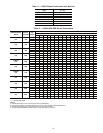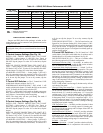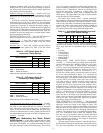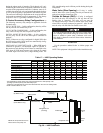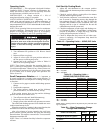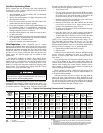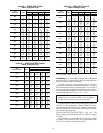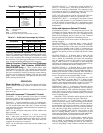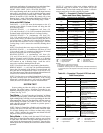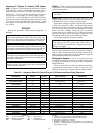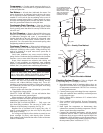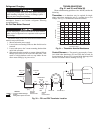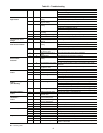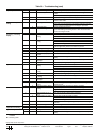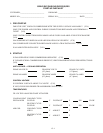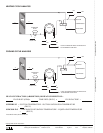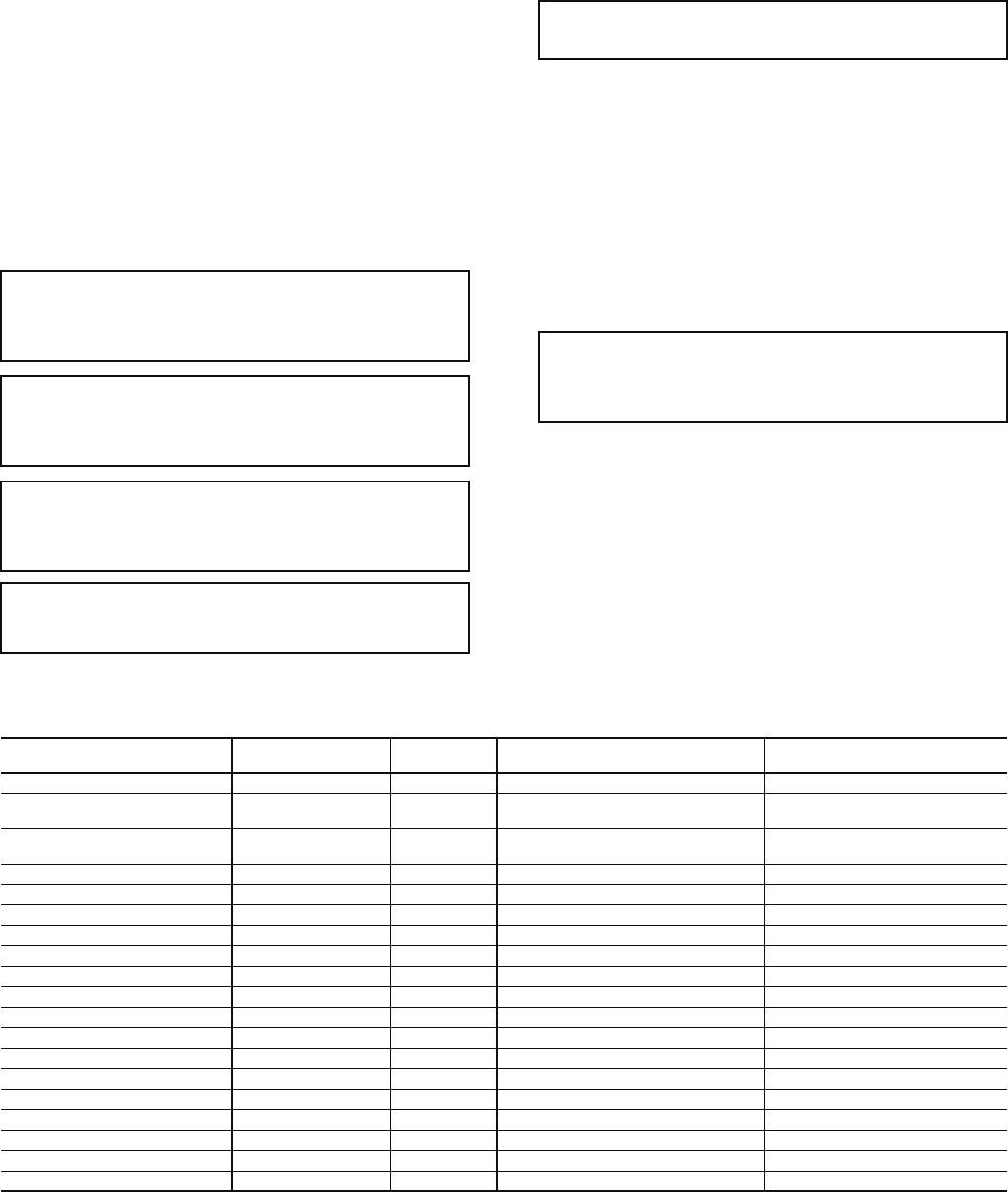
38
Aquazone™ Deluxe D Control LED Indica-
tors —
There are 3 LED indicators on the Deluxe D Control:
STATUS LED — Status LED indicates the current status or
mode of the Deluxe D control. The Status LED light is green.
TEST LED — Test LED will be activated any time the De-
luxe D control is in test mode. The Test LED light is yellow.
FAULT LED — Fault LED light is red. The fault LED will al-
ways flash a code representing the last fault in memory. If there
is no fault in memory, the fault LED will flash code 1 on the
and appear as 1 fast flash alternating with a 10-second pause.
See Table 29.
SERVICE
Perform the procedures outlined below periodically, as
indicated.
Filters — Filters must be clean for maximum performance.
Inspect filters every month under normal operating conditions.
replace when necessary.
Water Coil — Keep all air out of the water coil. Check
open loop systems to be sure the well head is not allowing air
to infiltrate the water line. Always keep lines airtight.
Inspect heat exchangers regularly, and clean more frequent-
ly if the unit is located in a “dirty” environment. Keep the heat
exchanger full of water at all times. Open-loop systems should
have an inverted P trap placed in the discharge line to keep
water in the heat exchanger during off cycles. Closed-loop
systems must have a minimum of 15 psi during the summer
and 40 psi during the winter. Generally, the higher the water
flow through the bail, the lower the chance for sealing.
Check P trap frequently for proper operation.
Condensate Drain Pans — Check condensate drain
pans for algae growth twice a year. If algae growth is apparent,
consult a water treatment specialist for proper chemical treat-
ment. Applying an algaecide every three months will typically
eliminate algae problems in most locations.
Refrigerant System — Verify air and water flow rates
are at proper levels before servicing. To maintain sealed circuit-
ry integrity, do not install service gauges unless unit operation
appears abnormal.
Check to see that unit is within the superheat and subcool-
ing temperature ranges shown in Table 21. If the unit is not
within these ranges, recover and reweigh in refrigerant charge.
Table 29 — Aquazone Deluxe D Control Current LED Status and Alarm Relay Operations
LEGEND NOTES:
1. If there is no fault in memory, the Fault LED will flash code 1.
2. Codes will be displayed with a 10-second Fault LED pause.
3. Slow flash is 1 flash every 2 seconds.
4. Fast flash is 2 flashes every 1 second.
5. EXAMPLE: “Flashing Code 2” is represented by 2 fast flashes fol-
lowed by a 10-second pause. This sequence will repeat continually
until the fault is cleared.
IMPORTANT: When a compressor is removed from this
unit, system refrigerant circuit oil will remain in the com-
pressor. To avoid leakage of compressor oil, the refrigerant
lines of the compressor must be sealed after it is removed.
IMPORTANT: All refrigerant discharged from this unit
must be recovered without exception. Technicians must fol-
low industry accepted guidelines and all local, state and fed-
eral statutes for the recovery and disposal of refrigerants.
IMPORTANT: To avoid the release of refrigerant into the
atmosphere, the refrigerant circuit of this unit must only be
serviced by technicians which meet local, state and federal
proficiency requirements.
IMPORTANT: To prevent injury or death due to electrical
shock or contact with moving parts, open unit disconnect
switch before servicing unit.
IMPORTANT: Units should never be operated with-
out a filter.
IMPORTANT: To avoid fouled machinery and extensive
unit clean-up, DO NOT operate units without filters in
place. DO NOT use equipment as a temporary heat source
during construction.
DESCRIPTION
STATUS LED
(Green)
TEST LED
(Yellow)
FAULT LED (Red) ALARM RELAY
Normal Mode On Off Flash Last Fault Code in Memory Open
Normal Mode with PM On Off Flashing Code 8
Cycle (closed 5 sec,
open 25 sec, …)
Deluxe D Control is
non-functional
Off Off Off Open
Test Mode — On Flash Last Fault Code in Memory Cycling Appropriate Code
Night Setback Flashing Code 2 — Flash Last Fault Code in Memory —
ESD Flashing Code 3 — Flash Last Fault Code in Memory —
Invalid T-stat Inputs Flashing Code 4 — Flash Last Fault Code in Memory —
No Fault in Memory On Off Flashing Code 1 Open
HP Fault Slow Flash Off Flashing Code 2 Open
LP Fault Slow Flash Off Flashing Code 3 Open
FP1 Fault Slow Flash Off Flashing Code 4 Open
FP2 Fault Slow Flash Off Flashing Code 5 Open
CO Fault Slow Flash Off Flashing Code 6 Open
Over/Under Voltage Slow Flash Off Flashing Code 7 Open (closed after 15 minutes)
HP Lockout Fast Flash Off Flashing Code 2 Closed
LP Lockout Fast Flash Off Flashing Code 3 Closed
FP1 Lockout Fast Flash Off Flashing Code 4 Closed
FP2 Lockout Fast Flash Off Flashing Code 5 Closed
CO Lockout Fast Flash Off Flashing Code 6 Closed
CO — Condensate Overflow HP — High Pressure
ESD — Emergency Shutdown LP — Low Pressure
FP — Freeze Protection PM — Performance Monitor



